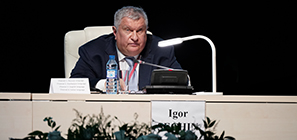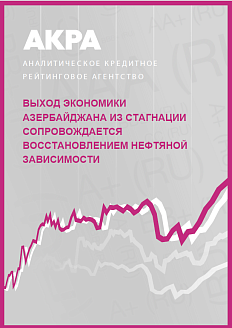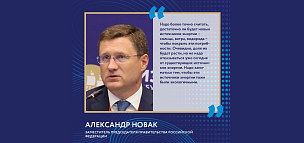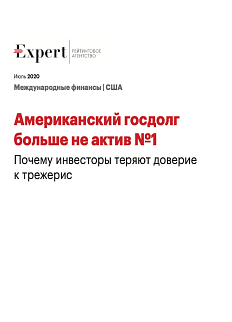The Russian economy is slowly growing
According to the rating agency Expert RA, the Russian economy is currently in a phase of slow growth amid the tight monetary policy pursued by the Central Bank of Russia. The authors of the report believe that high real interest rates combined with fiscal consolidation have been impeding growth of business activity outside the export-oriented sectors, while the process of monetary easing has only just started.
Russia’s gross domestic product (GDP) increased by 1.6% in 2017 and by 2.3% in 2018. However, Expert RA analysts consider this a one-time effect. The agency expects that GDP growth will remain relatively low in 2019-2020. In 2019, it is projected at 1.4%, in 2020 it will accelerate to 1.8%, and will be within the range of 1.5 to 2% by 2021.
In early 2019, consumer price inflation accelerated, reaching 5.3% annually by April.
Overall, the Russian economy has adapted to the VAT increase. Its negative effects were mitigated by the relatively high prices for oil and the appreciation of ruble. Inflation expectations of households and businesses soared in the first six months of 2018, but then started to decrease in early 2019. A low inflation combined with high interest rates impedes economic growth because it restricts lending and inhibits investment activity while reducing consumption in an indirect way. In the corporate sector, high debt level has a considerable negative effect on profitability.
Large amounts of natural resources and low external debt offset the decline in economic growth
According to the authors of the report, Russia’s economic stability can be primarily attributed to high prices for exported natural resources (especially oil and other hydrocarbons), and to a relatively conservative management of export revenues. From the economic perspective, such factors as large amounts of natural resources and a low level of debt are viewed as much more important than growth rates.
In recent years, ruble has become less dependent on oil prices, while its oil price elasticity has decreased in absolute terms. However, the Russian economy remains heavily dependent on the oil and gas sector and, consequently, on global markets for hydrocarbons. Volumes of Russian oil exports aren’t growing, but this is because the country continues to restrict oil production under the OPEC+ agreement. The authors of the report believe that as the OPEC+ agreement guarantees the stability of the oil market, it will be extended to the end of 2019 and then for a longer period, despite the high oil prices.
Russia’s external debt has decreased to 454 bn dollars by 2019, which is the lowest level since 2008. The decrease was mainly due to a reduction in external debt liabilities of Russian companies and banks in the context of sanctions.
Russia’s trade balance has been growing since 2016. Consequently, the current account surplus has also been growing. In 2018, it reached 113.8 bn dollars (+243% year on year), and equaled 32.8 bn dollars in the first quarter of 2019 (+9.25% compared to the same period of 2018). The geographical structure of Russia’s trade has somewhat changed. Russia’s key partners are still the EU countries (43.2% of total external trade turnover), China (16.6%), and the CIS countries (11.1%) but the shares of the EU and CIS shrank by 2.1 p.p. and 0.8 p.p. respectively in the first quarter of 2019.
In Russia’s external trade transactions, dollar is being replaced by euro and ruble. Since 2013, the share of dollar has shrunk by 12.6%, while the shares of euro and ruble have grown by 26.6% and 14.0% respectively. The share of yuan has increased by 8.8 times, but remains relatively small. In Sino-Russian trade transactions, the share of ruble has grown by 5.2 times.
The recovery in consumer demand will stimulate economic development, while the uncertainty on global markets will impede it
Such factors as the recovery in consumer demand (which has been demonstrating a downward trend since 2014) and the implementation of national projects are expected to be favorable for Russia’s economic development. At the same time, Expert RA analysts believe that the stagnation in household disposable income is unlikely to bring about a growth in the consumer sector of the Russian economy.
Business environment is also a crucial factor in economic growth. Attracting capital is still costly for Russian companies and banks due to the current interest rates which are intentionally kept at a high level, the oligopoly of state-owned banks, and the dominance of large issuers on the domestic bond market. Investments are mainly funded with the money coming from revenues and internal corporate financing, which cover nearly 60% of investment activity.
The authors of the report present the global market as the most fraught with uncertainty and risks. Capital flows decrease due to a reduction in foreign direct investments and a drop in foreign investors’ interest in the market for OFZ bonds. Moreover, politically driven sanctions against Russia lead to an increase in the risk premium when investing in Russian companies and banks. New sanctions against Russia may bring about a rise in consumer-price inflation (calculated based on CPI) which will be caused by depreciation of ruble, reduction in product offering, gaps in value chains, and an increase in logistic costs.






